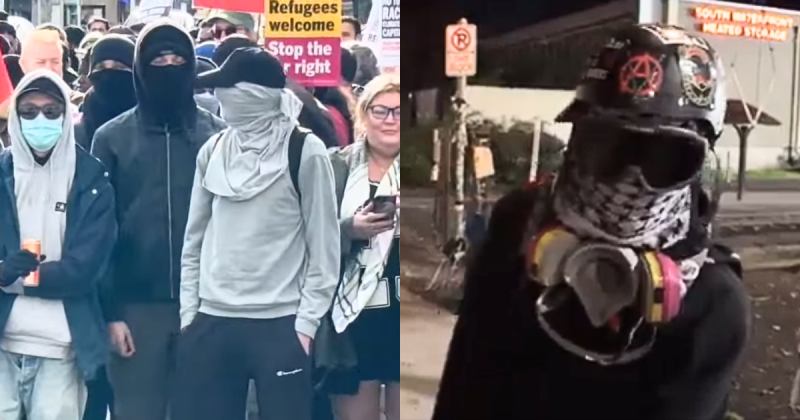Recent incidents in Portland, Oregon, and Boulder, Colorado, reveal a troubling pattern among Antifa-affiliated groups: the creation of public “hit lists” that single out journalists and student leaders for perceived ideological opposition.
These actions have led to threats, harassment and physical assaults, raising concerns about press freedom, student safety and law enforcement responses.
During protests against Immigration and Customs Enforcement (ICE) in Portland, flyers circulated identifying independent journalists—Cam Higby, Chad Caton and an X user known as @oceanplot—as “far-right/right-leaning content creators.”
Protesters were warned not to provide these individuals with content that could fit their reporting narratives, effectively marking them as targets.
One journalist described the flyers as a “hit list,” noting that they prompted threats and harassment against those identified.
The flyers included images of the journalists and emphasized that they traveled to multiple cities to cover protests in ways aligned with their reporting interests.
Local media coverage has been limited, overshadowed by other news and ongoing arrests at demonstrations, though at least two people were recently arrested at Portland’s ICE facility, bringing total arrests there to 55, The Western Journal reports.
In Boulder, a 19-year-old Turning Point USA student leader was assaulted near the University of Colorado campus.
The suspect, described as a white male wearing black clothing and a ski mask, approached the victim from behind while he was riding a bicycle and struck him with a hockey stick.
The victim sustained no serious injuries and declined medical treatment, according to The Post Millennial.
Investigators are examining whether prior social media posts and a digital flyer circulated by Colorado Antifa groups contributed to the assault.
The flyer accused the student of participating in white supremacist activities and encouraged followers to notify the university about the alleged conduct.
Boulder Police confirmed Antifa involvement and are investigating the connection between the distributed materials and the attack.
Targeting of journalists is not limited to Portland and Boulder.
In Seattle, Higby, along with journalist Brandi Kruse were violently attacked while covering anti-ICE protests.
Fox News reported in June that Higby suffered a concussion and severe trauma after being choked, punched with sap gloves and kicked.
Kruse was harassed, sprayed with hornet killer and physically assaulted along with her team and a bystander veteran who tried to intervene.
Both journalists accused city officials and local media of ignoring or downplaying left-wing violence.
Resist the Mainstream previously highlighted that conservative influencer Nick Sortor was also arrested during confrontations outside an ICE facility in Portland, drawing national attention and being highlighted by President Trump as evidence of leftist extremism.
Katie Daviscourt, a reporter for TPM, was also attacked in Portland.
She was struck in the face with a flagpole by an alleged Antifa-affiliated protester, suffering a black eye while covering protests outside the ICE facility on Sept. 30.
Daviscourt described the city as experiencing “complete lawlessness,” accusing protesters of frequently targeting journalists, residents and ICE agents.
Despite chasing the suspect through the streets, she reported that police refused to intervene.
These events illustrate a clear pattern in which Antifa-affiliated groups identify and publicize individuals—whether journalists or students—for ideological opposition.
Law enforcement officials in both cases have confirmed Antifa involvement and are investigating the links between the distributed materials and harassment or assault.
Observers warn that such actions risk escalating political and physical confrontations while complicating law enforcement responses.
The use of targeted “hit lists” raises broader concerns about freedom of speech, press safety, and student safety on college campuses and in public spaces.
As investigations continue, the incidents in Portland and Boulder are likely to fuel ongoing national debates over protest tactics, accountability for extremist actions and protections for journalists and students documenting politically charged events.

